With the Cambodian general election on the horizon, the country’s ruling party has launched a ruthless crackdown on all forms of dissent. Opposition figures, rights activists like Tep Vanny and journalists are all under fire, explains James Gomez, Amnesty International’s Southeast Asia and Pacific Director.
Climate of fear
In July last year, Cambodia’s Prime Minister Hun Sen gave a speech to his supporters shortly after his Cambodian People’s Party (CPP) suffered unexpected losses in local elections. Dressed in a military uniform, the long-time ruler did not mince his words. He warned his opponents to “prepare their coffins” and said that he would eliminate “100 to 200 people” if it was needed for “national security.” Troops were standing ready to “crack down on all movements that would [topple the government].”
Six months later, it is safe to say that this was not an empty threat. Cambodia’s ruling party has launched a swift, ruthless and far-reaching crackdown on all forms of dissent. Opposition figures, rights activists and journalists have all become targets of the authorities—there is a palpable climate of fear among activists in Cambodia.
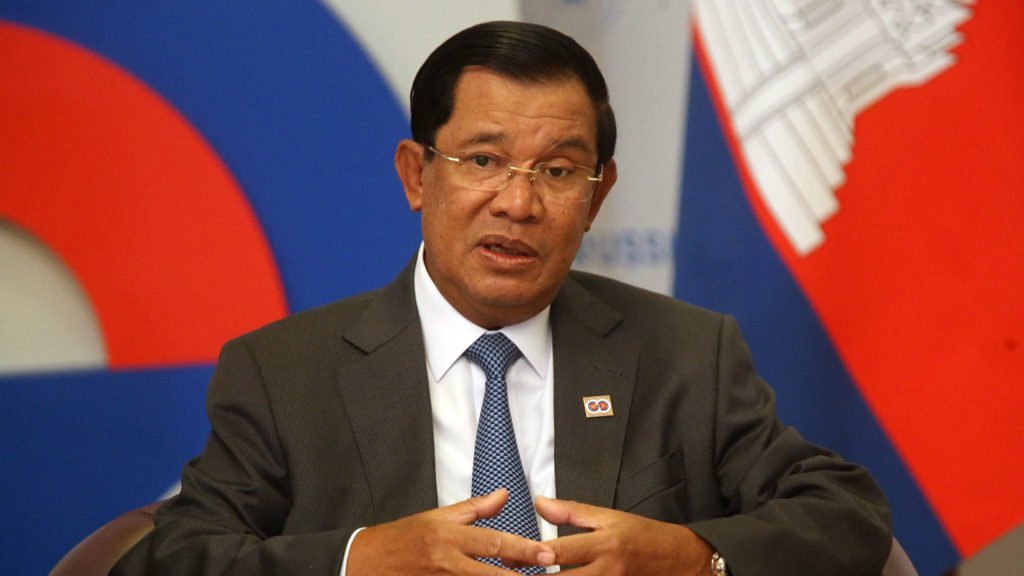
Remarkably, Hun Sen and his allies have managed to do this largely without attracting international attention. Cambodia has emerged from the decades of brutality under the Khmer Rouge regime and widespread political violence in the 1990s. But unless the world wakes up to what is going on, this progress risks being rolled back—and much of it already has.
The crackdown has to be seen in the context of general elections that are due this summer. In the last vote in 2013, the opposition Cambodia National Rescue Party (CNRP)—led by the charismatic Sam Rainsy—almost pulled off a surprise win, despite the odds being stacked against it. Hun Sen seems determined not to let this happen again—let alone allow a full upset.
Crackdown on political opposition
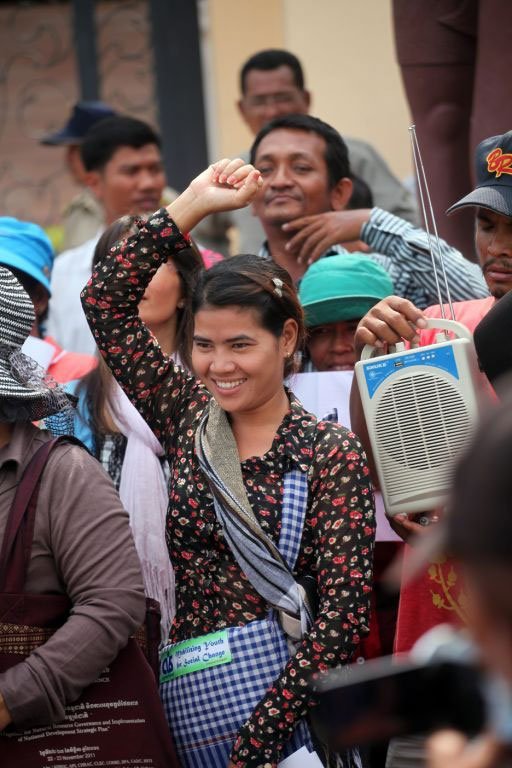
Today, the CNRP has been all but decimated. Sam Rainsy has been forced into exile to avoid facing trumped up defamation charges and long imprisonment. In September last year, the CNRP leader Kem Sokha was arrested on ludicrous accusations of “treason”. One month later, his deputy, Mu Sochua, fled the country to avoid a similar fate. At least 35 other leading opposition figures have been arrested since 2015, 19 of whom still remain behind bars.
In November, the supreme court put the final nail in the coffin of the CNRP by dissolving the party completely and banning many of its key members from political activity for five years. The court’s decision exposed how Cambodia’s judiciary has become little more than an arm of the ruling party, used to crush any form of dissent. With elections fast approaching, the question is no longer if the opposition will be allowed a fair fight, but whether it will be let into the ring at all.
Civil society and media under pressure
However, it is not just the political opposition that has been swept up in the crackdown. Cambodia’s vibrant civil society is also facing unprecedented pressure. Relying on repressive legislation that gives authorities sweeping power to control the NGO sector, the government last year shut down the US-funded National Democratic Institute and has threatened to do the same to other civil society groups.
While NGOs and individual human rights activists have continued to bravely fight against injustice, they are increasingly doing so at their own risk. Tep Vanny, a housing and land rights activist, is just one example. Since 2013, she has been arrested at least five times for defending her community around Boeung Kak lake in Phnom Penh against eviction. Her latest arrest in August 2016 resulted in a two-and-a-half year prison sentence. Her only “crime” was her peaceful involvement in “Black Monday”, an advocacy campaign highlighting the imprisonment of five other rights defenders.
Hun Sen’s government has also set its sight on the media sector. In September, the English-language Cambodia Daily—one of the country’s few independent print media outlets—was abruptly forced to close over an allegedly unpaid tax bill. Around the same time, the government forced broadcasts from Voice of America and Radio Free Asia off the air, while also shutting down the independent radio station Voice of Democracy. Broadcast media in Cambodia is now almost completely under government control.
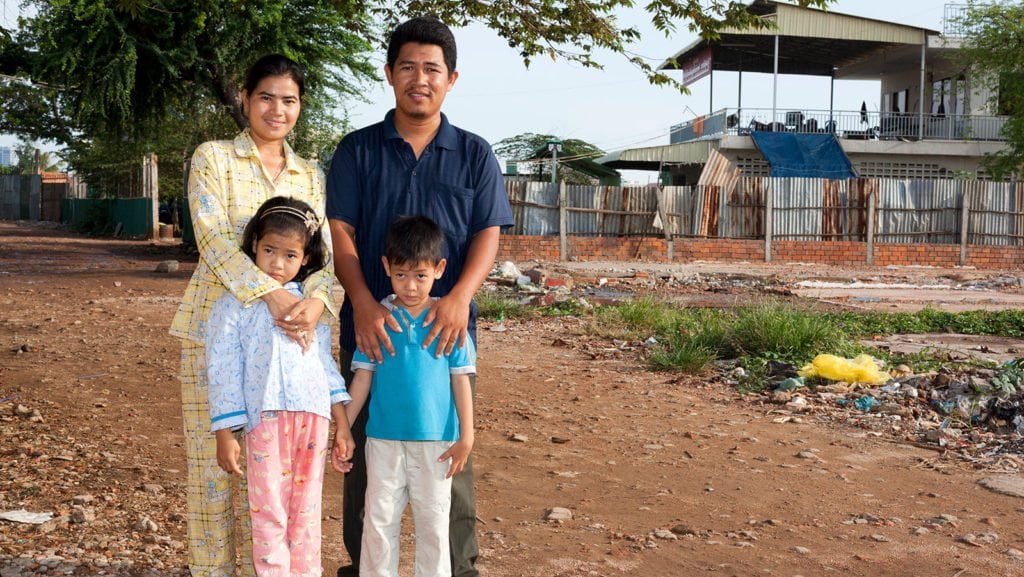
International community must speak out
As Hun Sen tightens his iron grip, it is high time the international community spoke out against the crackdown in Cambodia. Many UN officials have, to their credit, tried to highlight the situation. In September 2017, Rhona Smith, the UN Special Rapporteur on human rights in Cambodia, warned that Cambodia is slipping “inexorably towards a precipice.”
But the reaction from key states has been tepid, perhaps due to fears of pushing Cambodia even further into the arms of China. While the U.S. has withdrawn some funding and issued a few stern rebukes, it could and should do much more. Japan and the EU are providing significant development aid to Cambodia, they must use their influence to push the government to change course immediately. As the July elections draw closer, the coming months will be crucial.
When Amnesty International met Tep Vanny’s mother in Phnom Penh last year, she told us about her daughter’s spirit of activism. “Even when she was beaten in protests, she would return the next day. If anyone is in trouble my daughter will support them in their search for justice.” The world must ensure that Tep Vanny and others like her are not left to fight this battle alone.
This article was first published on www.newsweek.com.
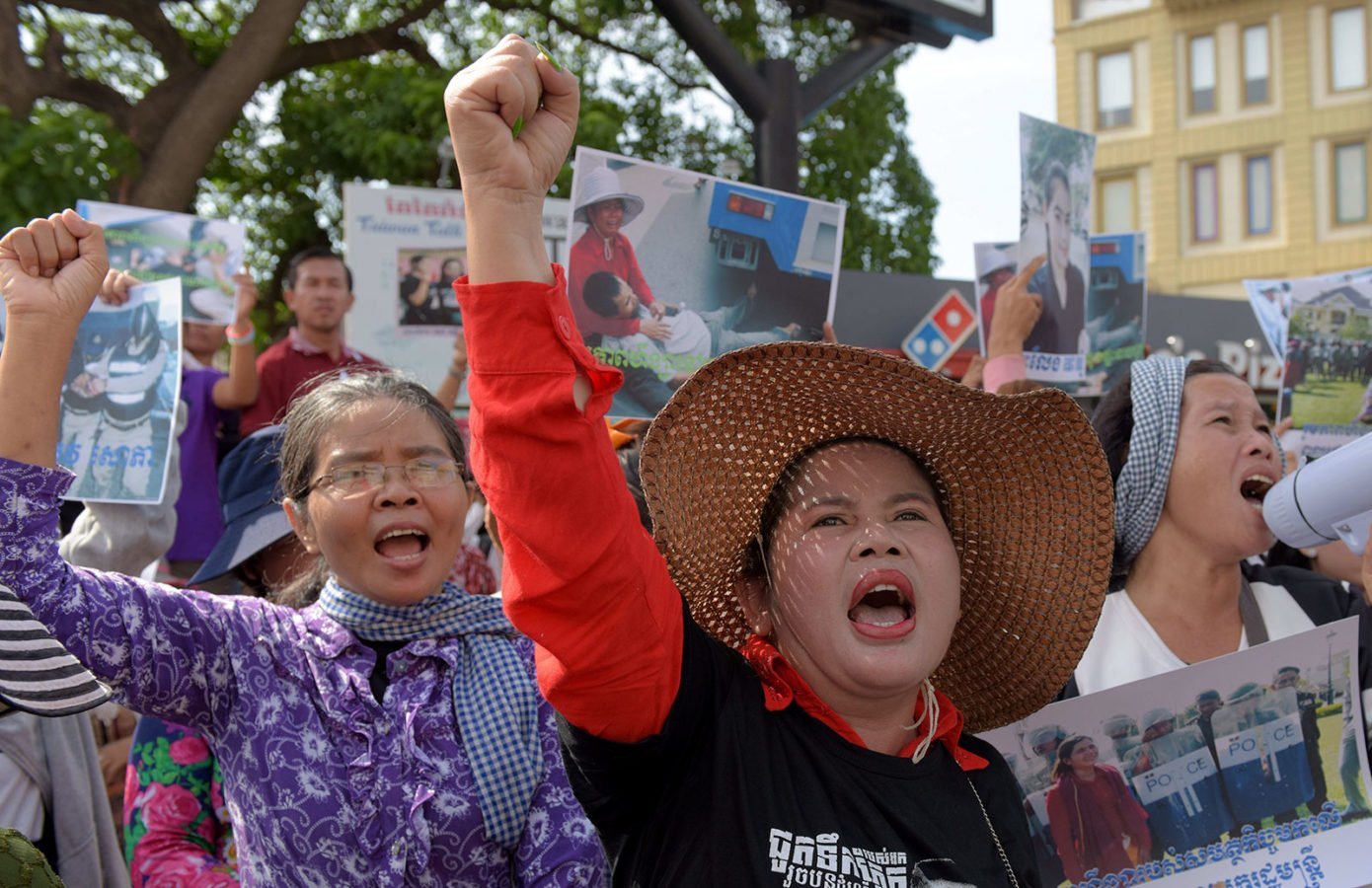
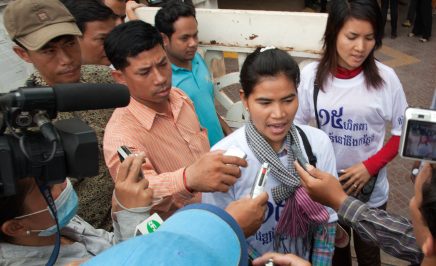
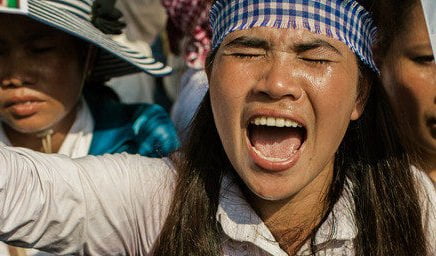
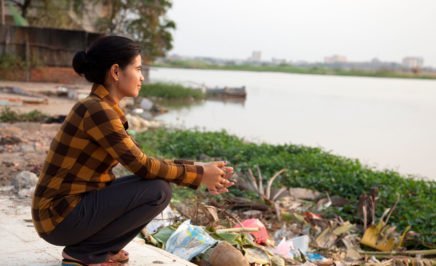
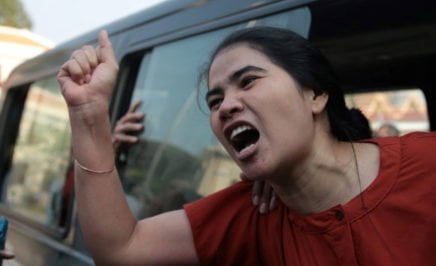
Australia must now help and insist on getting democracy back again as it did twenty years ago. It is almost a dictatorship which suits China. Hun Sen is reverting to his old ways when he was in the Khemer Rouse
I am outraged at the despotic actions that are evident in Cambodia. The country has an appalling history of human rights atrocities and it seems as if this is becoming evident in the present political climate.